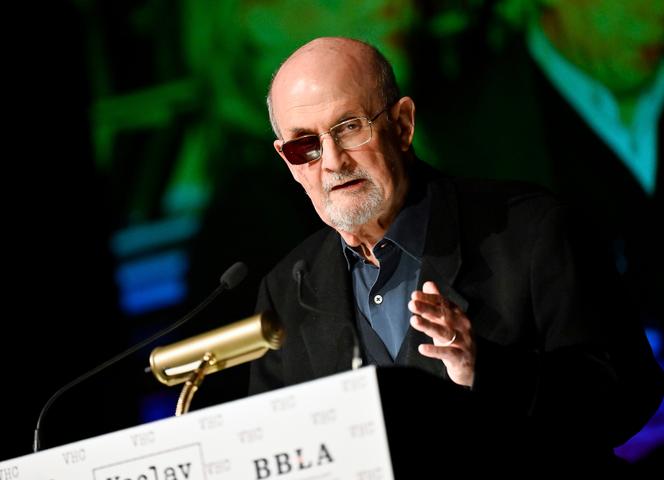


Gérard Meudal has been Salman Rushdie's official French translator since 2008's The Enchantress of Florence. He considers this activity to be in the public interest and which, despite the risks, he carries out under his real name.
I first met the writer in 1983 during an interview he gave me on the occasion of the publication in France of Midnight's Children (1981), and I've been translating him for over 15 years. His world and his imagination are therefore very familiar to me. The Knife is obviously totally unique in Rushdie's work. With the exception of Joseph Anton (2012), he has never ventured into the autobiographical realm. Yet in this book, we find all the author's qualities, his imaginative verve and even his sense of humor. I was very happy to translate it and above all, quite simply, to be able to read it, because in reality, I was very afraid he wouldn't survive the attack he suffered on August 12, 2022. It was imperative that he write this book, but he does so by distancing himself, without self-pity, but with the courage and lucidity that characterize him.
That the translator of The Satanic Verses (1988) and some other titles that followed used a pseudonym seems to me perfectly normal and even necessary. When I began translating Rushdie in 2008, almost 20 years after that terrible fatwa affair, I felt, perhaps wrongly, that it was ancient history. I'm proud and honored to be his French translator. Helping to make his work as widely known as possible seems to me to be an act of public utility, especially in these times, and I have no reason to be ashamed of it or to hide from it.
Salman Rushdie understands French fairly well, but he recognizes that this is not enough to assess the quality of a translation. He once confided in me that he'd asked some of his perfectly bilingual friends for their opinion on my work, and since then he's had complete confidence in me. When I'm about to finish a translation, I email him a list of questions, which he answers promptly. We mostly talk by email and, of course, whenever he travels to France.
Rushdie's language is perfectly classic, but it allows itself every boldness. In the case of The Knife, it is more factual, quite different, for example, from that of his previous novel, The City of Victory (2023), in which it opens up to the influences of the Indian imagination. For the translation of The Knife, the difficulty was not a linguistic one, it was sharing with him the horrible experience he lived through.
